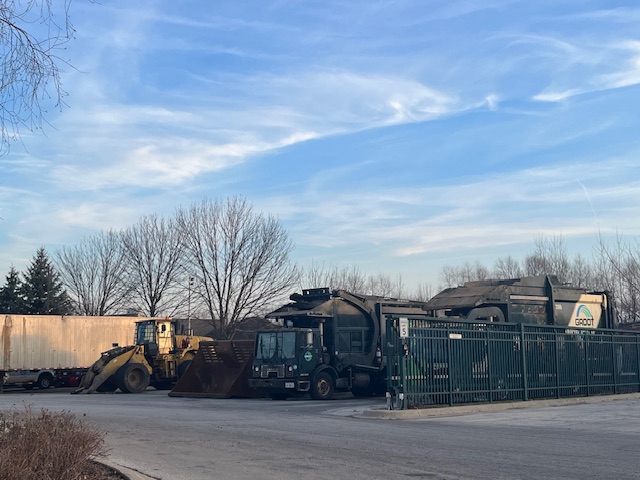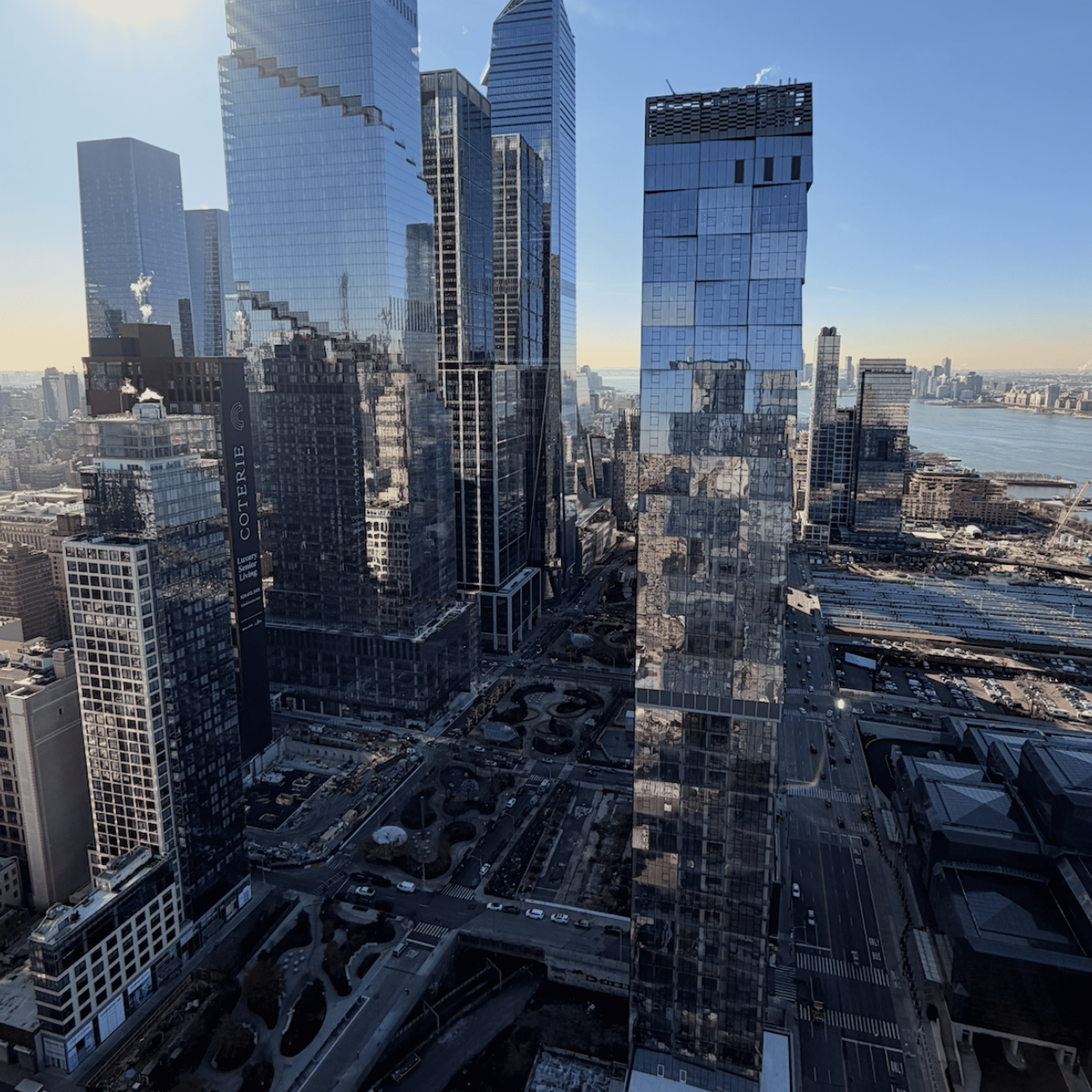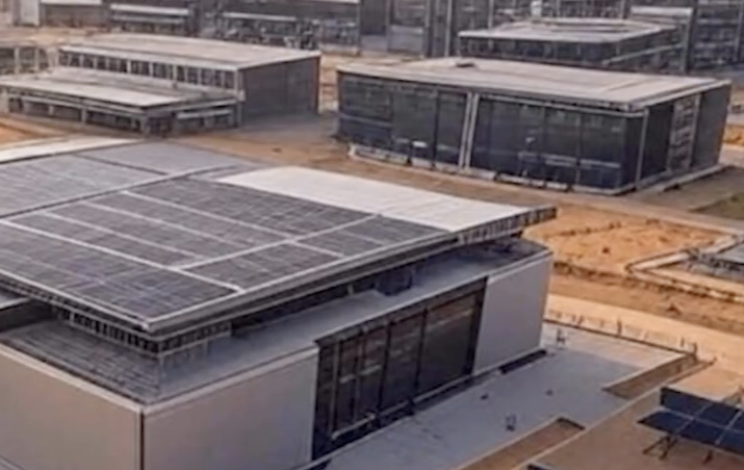(WEST CHICAGO, IL) West Chicago’s Latino residents are outraged that they have to start 2024 with a new round of protests against a proposal to dump over 650 tons of solid waste in the Lakeshore Recycling Systems (LRS) site. The daily dumping could lead to poorer air quality and lesser quality of life, advocates said.
This working-class, suburban city is already home to a garbage transfer site where trucks drop off trash before it’s hauled to landfills. For the past four years, protestors have fought the proposal to add a second transfer site. Residents won’t know if their efforts against the proposal are successful until the Illinois Pollution Control Board decides on it next year.
Stopping the proposal is essential for the health and safety of Latino residents, Cristobal Cavazos, the head of a community activist group Immigrant Solidarity Dupage, said. (Cavazos’ interview was conducted in Spanish and translated into English for this article.)
“Without the working Mexican residents of West Chicago, the county would collapse,” Cavazos said. “They are the workers that are in factories and warehouses and are doing all the work. They’re doing all the food and construction. They have a great value.”
Nearly half of the West Chicago population is Latino and includes generations of Mexican immigrants and their American-born children, according to the U.S. Census. The median household income from 2017-2021 was $92,335.
Groot Industries is an independent waste management company that runs the trash transfer station on Powis Road and services Dupage County, where the population is 78% white.
A waste transfer station is “a facility where solid waste is unloaded from smaller trucks and reloaded into larger vehicles for transfer to a final disposal site,” according to the EPA.
The proposal for a second trash-transfer station would be located a mile away and along the same Powis Road. The proposed site is owned and operated by LRS, another private trash-hauling company, which uses the location to recycle construction debris.
The cost for the proposed site is unclear.
Andrew Sedlacuk said he understands the need for managing waste disposal, but he is concerned about furthering the narrative that West Chicago is a place where you “dump things.”
“I hate that it’s furthering the narrative for more affluent white homeowners that think West Chicago is a less good place,” Sedlacuk, 30, said. “I also hate how it is discouraging people, who live here, who are being told that they live in a bad neighborhood. All of that, I think, is false. It’s a lie. But when decisions like these are made, it reinforces that narrative for people.”
LRS, the company expected to run the second transfer station, could not be reached for comment.
West Chicago Mayor Ruben Pineda said at his October “Coffee with the Mayor” event that the city approved the proposal and it is now in the hands of the state whether or not to approve the proposal.
The proposed waste-transportation site at the LRS location would hold garbage from Dupage County and neighboring counties such as Cook and Kane to process and then transfer the waste to final sites.
Protect West Chicago, a group specifically formed to oppose the proposed plan, filed a petition requesting a hearing and review of the proposal for the second site. Another group, P.O.D.E.R. (People Opposing Dupage Environmental Racism) also formally filed a petition. P.O.D.E.R. is a subcommittee of a larger activist group, Immigrant Solidarity Dupage, a grassroots organization that aims to bring solidarity within the local immigrant community.
West Chicago was ranked number nine in Fortune Magazine last year for the best place to live for families in the United States. However, introducing a second waste transportation site there may threaten to disrupt that title.
“I don’t think they should make another one. I feel like there are other ways to go around it. I don’t know if they’ve looked at the alternatives yet,” Rosario Garcia, 24, said.
Having a fleet of garbage trucks passing through West Chicago every day will contribute to the already toxic area that was created because of the city’s history with environmental racism, Cavazos said. Specifically, Kerr-McGee, a company that produced radioactive elements such as thorium that are usually produced in the desert or Nevada.
Jennifer Fawell sued the company in 1986 after she got sick with Hodgkin’s lymphoma. The lawsuit was settled out of court for an undisclosed amount. Fawell was 34 when she passed away in 1992.
“Air emissions at transfer stations can come from unloading dry, dusty waste delivered to the waste transfer station, exhaust from trucks, loaders, and other equipment, and driving over unpaved surfaces,” according to the EPA.
The EPA also heeds warnings to pregnant women but measuring the link between health effects and landfill sites may be complicated because it is difficult to measure exposure in small doses and over a long period.
George Muller, LRS’ corporate lawyer, said in an interview with the Chicago Sun-Times, that the LRS site is already an industrial area where there are various factories and companies.
The West Chicago city government had hearings in January before approving the proposal where residents were able to provide public comments. However, Cavazos said that the actual hearings were unfair as they did not address their Spanish-speaking residents and only spoke English throughout.
“They censured it, they did everything in English, even the lawyer of LRS made fun of us, saying ‘in West Chicago, they speak English’ and saying we were creating a culture war by saying it is environmental racism. It’s completely ridiculous,” Cavazos said.
Protect West Chicago could not provide a comment at the time. The organization is expected to file a brief on the issue at the end of December.


